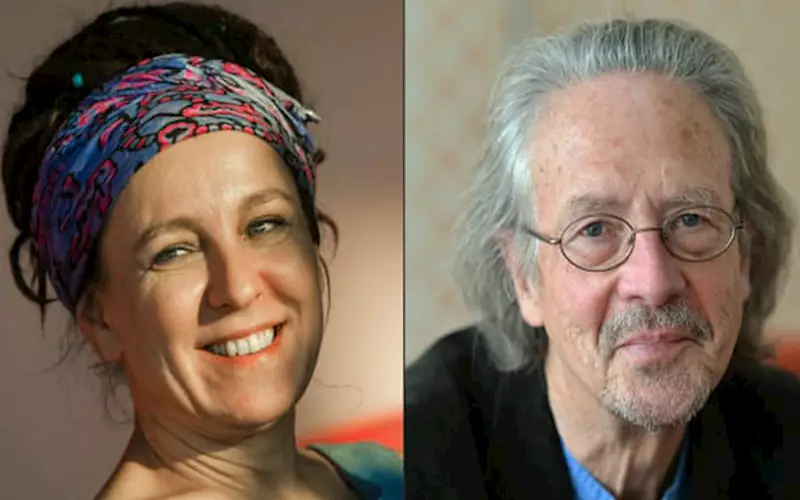Olga Tokarczuk and Peter Handke win Nobel Prize for literature
Following a sexual harassment scandal last year, which saw the Nobel Prize for Literature for 2018 being postponed, the Royal Swedish Academy of Sciences, Stockholm, Sweden, on 10 October announced the winners of the Prize for both 2018 and 2019. Olga Tokarczuk and Peter Handke were announced winners of the Nobel Prize for Literature for 2018 and 2019 respectively.
11 Oct 2019 | By Dibyajyoti Sarma
Yet, the controversy refuses to shimmer down, with PEN America expressing ‘deep regret’ over the choice of Peter Handke, who ‘has used his public voice to undercut historical truth and offer public succour to perpetrators of genocide.’
The 76-year-old Austrian playwright, novelist and poet, whose works in translation has been published by Kolkata-based Seagull, was recognised for ‘an influential work that with linguistic ingenuity has explored the periphery and the specificity of human experience,’ the academy said in a statement.
However, Handke has been a highly controversial figure for his support for the Serbs during the 1990s Yugoslav War, and for speaking at the 2006 funeral of former Serb leader Slobodan Milosevic, who was accused of genocide and other war crimes.
In 2014, Handke even called for the Nobel Prize for Literature to be abolished, saying it brings its winner ‘false canonisation’ along with ‘one moment of attention [and] six pages in the newspaper’.
Tokarczuk, an activist, public intellectual, and critic of Poland’s politics, won the 2018 award, and was cited by the committee for her ‘narrative imagination that with encyclopedic passion represents the crossing of boundaries as a form of life’.
She is a bestseller in Poland, and has become much better known in the UK since winning the 2018 Booker international prize for her sixth novel, Flights. The Nobel committee’s Anders Olsson said her work, which ‘centres on migration and cultural transitions’, was ‘full of wit and cunning’.
Meanwhile, according to The Guardian, at Tokarczuk’s UK publisher, Fitzcarraldo, a small independent press which also published 2015’s Nobel laureate, Svetlana Alexievich, Jacques Testard was about to speak to his printers to rush through reprints of her books Flights and Drive Your Plow Over the Bones of the Dead. Tokarczuk had not been published in the UK for some time when he approached her about taking on her work. He had wanted to find a Polish writer to publish in English in the wake of the Brexit referendum, and the violence against the Polish community that followed in its wake. Tokarczuk, he said, was the clear choice.











 See All
See All